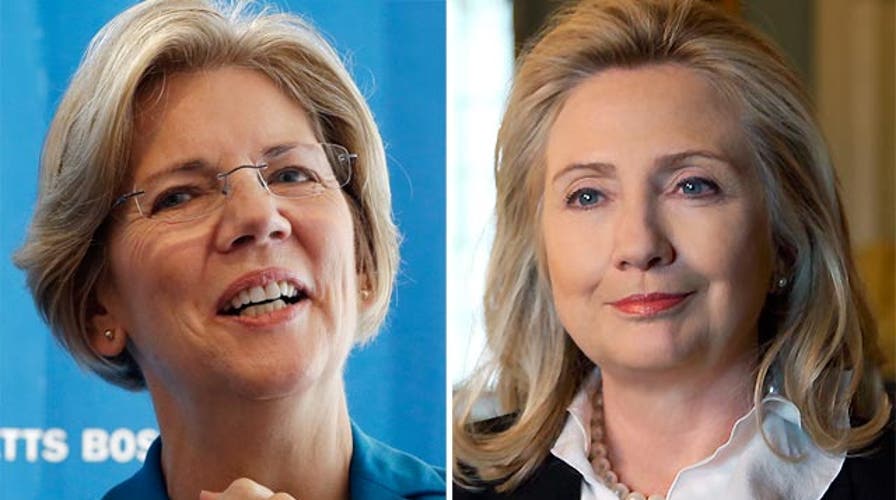The biggest issue confronting Hillary Clinton’s early 2016 aspirations is not the possibility of a primary by Vice President Biden or other senators and governors who have been making the national rounds in the hope that she is weakened or does not run.
It is not the increased drumbeat emanating from the Beltway press corps critical of her political operation.
It is not the obsessive focus by Washington Republicans on the events in Benghazi, who, due to their almost demented political obsession with taking Hillary Clinton down, have actually done a disservice to those seeking real answers about what happened in Libya.
[pullquote]
Instead, the biggest issue facing Hillary Clinton is Senator Elizabeth Warren of Massachusetts, a woman who has signed a letter urging Hillary to run and who has made repeated Shermanesque statements about her own presidential ambitions in 2016.
The allure of Warren to the Democratic base is simple: she draws the starkest contrast possible between politicians who carefully calibrate their language so as not to offend any particular constituency and those who speak clearly and directly to the frustrations Americans of all stripes, from the Tea Party to Occupy Wall Street, feel about the special interests who hold our government hostage.
Last September, Warren addressed the AFL-CIO using the kind of stark, populist language that Americans on both sides of the aisle have been hungering for.
She spoke of a rigged system that benefits Wall Street to the detriment of Main Street.
She spoke of a Supreme Court held in thrall by corporate interests.
She spoke of legislation to limit the ability of big banks to gamble with depositor’s money.
This type of rhetoric should be commonplace in Washington but it is not.
The ever-increasing quest for campaign cash has prevented high-ranking elected officials from speaking out this way – and has certainly prevented them from acting on it.
Warren’s own legislation to curb Wall Street’s excesses will likely not see the light of day, even when her own party controls the Senate agenda and even though it is written jointly with Republican Senator John McCain.
Neither party in Washington today wants any part of populism.
What the Beltway punditocracy fails to understand is that many politically engaged Americans on both sides of the aisle hunger for this kind of populist agenda.
It is the same kind of longing that produced a brash challenge to the Clinton brand in 2008. Then, Hillary Clinton lost the Democratic primary to a newcomer from Illinois, who became an avatar for the frustration Democrats outside the Beltway felt towards the cautious approach Washington politicians have taken towards the entrenched, special interest establishment.
In 2016, Hillary Clinton may finally become the Democratic nominee – but not before the base forces her to throw some caution to the wind and pay attention to the Elizabeth Warrens of the party.

